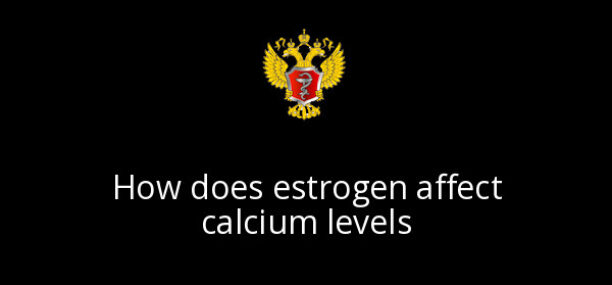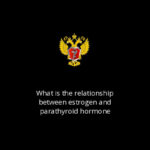Abstract
Estrogen plays a crucial role in maintaining calcium homeostasis by regulating calcium absorption, reabsorption, secretion, and bone turnover. Dysfunction or deficiency of estrogen can disrupt these processes, leading to calcium imbalances and associated health complications such as osteoporosis
How does estrogen affect calcium levels?
Estrogen plays a significant role in maintaining calcium homeostasis in the body through its effects on various organs and tissues. Here’s how estrogen affects calcium levels:
- Intestinal Absorption of Calcium: Estrogen enhances the absorption of calcium from the intestine, primarily in the duodenum and proximal jejunum. It does so by increasing the expression and activity of calcium transport proteins, such as the epithelial calcium channel TRPV6 and the calcium-binding protein calbindin-D9k. This promotes the efficient absorption of dietary calcium into the bloodstream, ensuring an adequate supply for various physiological processes.
- Renal Reabsorption of Calcium: Estrogen enhances the reabsorption of calcium in the kidneys, primarily in the renal tubules. It does so by increasing the expression and activity of calcium transporters, such as the transient receptor potential cation channel subfamily V member 5 (TRPV5) in the distal convoluted tubules. This helps prevent excessive loss of calcium in the urine and maintains calcium balance in the body.
- Regulation of Parathyroid Hormone (PTH) Secretion: Estrogen modulates the secretion of parathyroid hormone (PTH), a key regulator of calcium homeostasis. It suppresses the synthesis and secretion of PTH from the parathyroid glands, particularly in response to high estrogen levels. This inhibitory effect helps prevent excessive mobilization of calcium from bone and excessive renal calcium excretion, contributing to calcium conservation.
- Promotion of Bone Formation: Estrogen stimulates bone formation by promoting the activity of osteoblasts, the cells responsible for synthesizing and mineralizing bone matrix. Increased bone formation helps maintain calcium reservoirs in the skeleton and prevents calcium loss from bone. Estrogen also inhibits bone resorption by suppressing the activity of osteoclasts, the cells responsible for breaking down bone tissue and releasing calcium into the bloodstream.
- Preservation of Bone Density: Estrogen helps preserve bone density and strength by inhibiting bone turnover and promoting bone mineralization. It maintains a balance between bone formation and resorption, ensuring that bone mass is adequately maintained over time. Estrogen deficiency, such as during menopause, can lead to accelerated bone loss and increased fracture risk due to impaired calcium regulation and altered bone metabolism.
Verified by: Dr.Diab (March 29, 2024)
Citation: Dr.Diab. (March 29, 2024). How does estrogen affect calcium levels. Medcoi Journal of Medicine, 1(2). urn:medcoi:article32895.














There are no comments yet
Or use one of these social networks